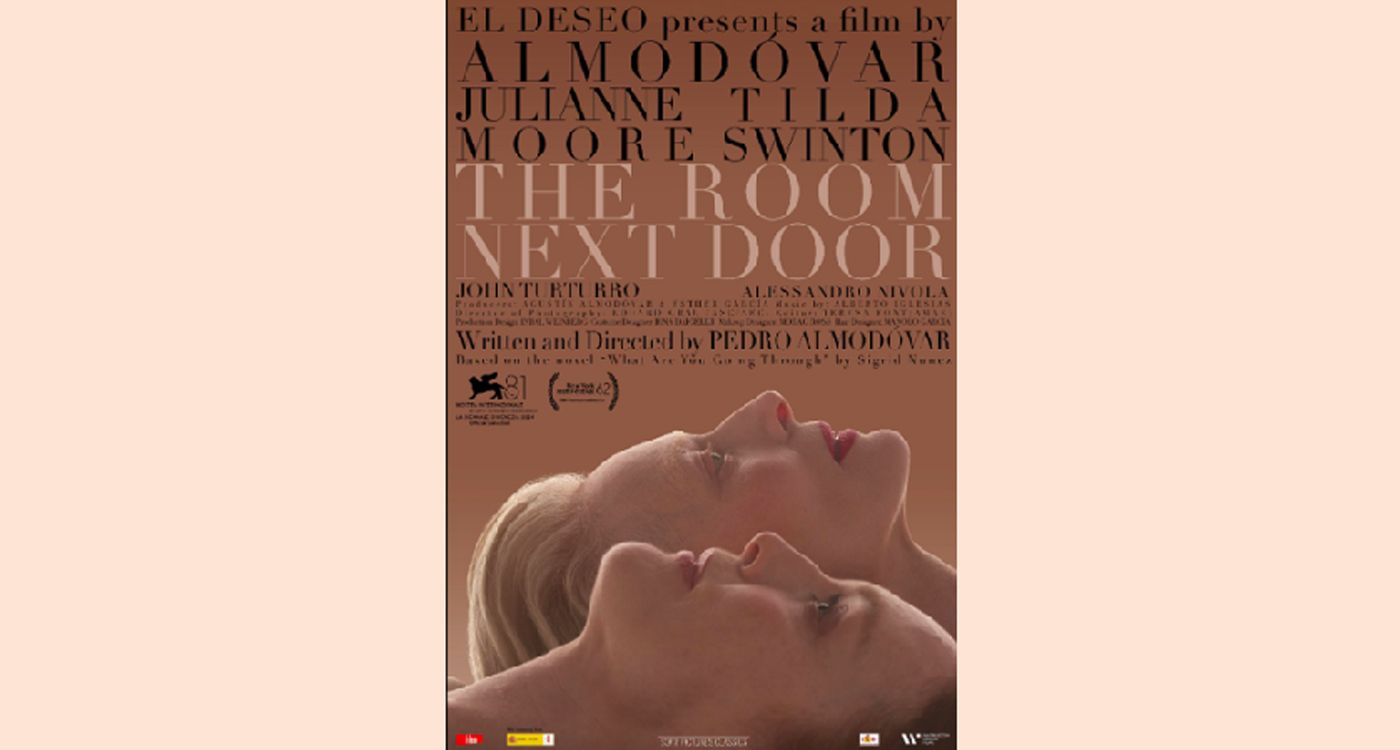
The Room Next Door, Pedro Almodóvar’s latest drama starring Tilda Swinton and Julianne Moore, explores friendship, existential questions, and human vulnerability through an intimate and visually striking narrative. The film is set to release in January 2025.
With The Room Next Door, Pedro Almodóvar delves into the complexities of friendship and life’s profound questions in an intimate and evocative film. The story follows two women, Ingrid (Julianne Moore), a renowned novelist, and Martha (Tilda Swinton), a seasoned war reporter. Once inseparable, the friends drifted apart over the years, each pursuing their ambitions and grappling with personal challenges.
The film’s plot revolves around their reunion after years of separation. In a tense, dialogue-driven setting, Ingrid agrees to support Martha during a critical personal ordeal. Together, they confront their past, their regrets, and the meaning of life and friendship.
Almodóvar tackles themes such as euthanasia, solitude, and redemption, prompting viewers to reflect on moral dilemmas, personal ethics, and life choices. Staying true to his signature style, he masterfully blends a captivating narrative, rich aesthetics, and profound human emotion.
Tilda Swinton: A nuanced performance
Tilda Swinton delivers a stunning performance as Martha. Known for her ability to portray layered and complex characters, she imbues the role with haunting depth and a captivating vulnerability. Tilda Swinton’s portrayal skillfully navigates Martha’s inner struggles, capturing her battle with fear, despair, and a relentless drive to control her fate.
Her expressive silences and emotional intensity elevate the character’s depth, making her portrayal unforgettable. Tilda Swinton seamlessly integrates into Almodóvar’s world, having already collaborated with him during the pandemic on The Human Voice, an adaptation of Cocteau’s monologue. Her ability to merge extravagance with restraint cements her role as the film’s emotional cornerstone.
Julianne Moore: Captivating emotional intensity
Opposite Tilda Swinton, Julianne Moore plays Ingrid, a woman burdened by her life choices and haunted by regret. Her performance oscillates between raw anger, poignant sadness, and tender vulnerability. Moore’s nuanced portrayal of Ingrid’s moral struggles and emotional wounds adds authenticity to the character.
Her expressive delivery, from subtle gestures to intense emotions, forms a compelling contrast with Tilda Swinton’s reserved approach. This dynamic creates a rich emotional interplay that enhances the narrative’s impact, highlighting the strength of their onscreen partnership.
A mesmerizing duo
The synergy between Tilda Swinton and Julianne Moore lies at the heart of The Room Next Door. Their contrasting acting styles—one restrained, the other expressive—create a magnetic dynamic that amplifies the film’s emotional weight. Their shared scenes, marked by simmering tension and raw dialogue, capture the intricate layers of their characters’ relationship.
The palpable chemistry between the two actresses brings authenticity to their roles, reflecting the complexities of love, resentment, and unspoken truths. Their real-life friendship adds depth to their onscreen connection, enriching the storytelling.
Almodóvar’s mastery of emotion
In The Room Next Door, Pedro Almodóvar remains true to his distinctive cinematic language while exploring minimalist and introspective themes. Known for his powerful melodramas and meticulously crafted characters, the Spanish filmmaker dives into universal themes of love, identity, and human connection.
This film emphasizes the fragility of human bonds, the often elusive search for meaning, and the lasting impact of past choices. Almodóvar’s poignant dialogues and elegant direction create a deeply emotional narrative enriched with cultural and literary references, lending the film a timeless quality.
A visual symphony of colors
As in all his works, Almodóvar uses color as a narrative tool in The Room Next Door. Vibrant tones underline the characters’ emotions, with red symbolizing passion, danger, and pain, while blue evokes serenity and melancholy.
These visual choices heighten the film’s tension and immerse viewers in its unique atmosphere. The colors act as an emotional guide, reflecting the protagonists’ inner lives and the story’s stakes.
A celebration of feminine complexity
Female characters are central to Almodóvar’s cinema, portrayed as complex, resilient, and deeply human. Whether as devoted mothers, passionate lovers, or women seeking redemption, his heroines transcend stereotypes to reveal a rich emotional spectrum.
In The Room Next Door, Almodóvar once again celebrates the strength and vulnerability of women, showcasing their ability to reinvent themselves in the face of adversity. His nuanced portrayals affirm his unique and invaluable perspective on femininity in all its dimensions.




Comments